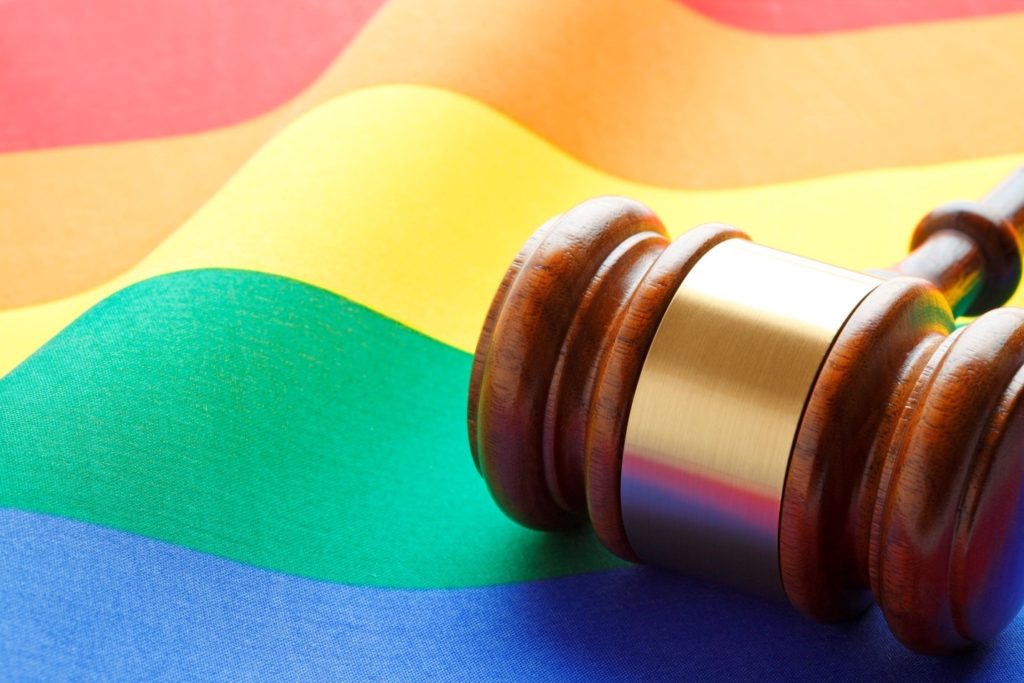
By L.A. Williams
Christian Action League
June 16, 2020
“A profound twist of the Constitution, natural law, and inalienable rights” — that’s how the Rev. Mark Creech, executive director of the Christian Action League describes Monday’s Supreme Court decision that radically redefines “sex,” giving special protections to LGBTQ people.
“Legally, the sex of an individual is now whatever that person thinks or says it is,” Creech wrote in a press release after the ruling he called “unquestionably political and devoid not only of legal legitimacy but truth.”
Rolling Stone labeled the sweeping 6-3 decision written by Justice Neil Gorsuch, a “sea change for equality” even more significant than the Court’s 2015 ruling affirming same-sex marriage.
“The central dispute in the cases is over whether the term ‘sex’ in Title VII (the federal anti-discrimination law that applies to workforces of 15 people or more) includes sexual orientation and gender identity. The law doesn’t mention ‘sexual orientation’ or ‘gender identity’ at all, but Justice Gorsuch said that doesn’t matter,’” wrote the magazine.
But what the law says and what its crafters meant when they penned it do matter.
“No one in their right mind believes that when it enacted the Civil Rights Act of 1964, Congress intended the word ‘sex’ to mean homosexuals and transgenders, although bills have been filed in Congress for years to add those terms to the law yet have never passed,” wrote Tami Fitzgerald, executive director of the NC Values Coalition in a press release. “From this day forward, this decision will degrade one of our most fundamental rights as Americans — the right to religious freedom. It cuts off the right of Americans who have deeply held religious convictions to fairness and freedom in the workplace, in sports, and in academics.”
The ruling involved three cases, two in which homosexuals claimed discrimination and a third involving a transgender person. That case, Harris Funeral Homes vs. Equal Employment Opportunity Commission, well illustrates situations that employers will face as a result of the ruling.
Alliance Defending Freedom has represented Harris since 2013 when a former employee of the Michigan-based, family-owned mortuary filed a complaint with the EEOC. The funeral home’s sex-specific dress code, which requires employees to dress in a manner sensitive to grieving family members and friends, had not been a problem when the male funeral director was hired. But nearly six years later, he announced he would start dressing and presenting as a woman while working with grieving families. When his boss refused to allow it, he sued. A federal court ruled in favor of the funeral home in 2016, but the EEOC appealed the decision. Two years later the U.S. Court of Appeals for the Sixth Circuit ruled for the transgender employee. That’s when ADF appealed to the Supreme Court, which heard arguments last October and announced the decision this week.
ADF explains a few of the many implications of the Court ruling on its website:
“The ruling could prohibit a religious employer from declining to recognize a same-sex relationship as a ‘marriage’ for purpose of benefits. It could subject a small business owner to liability if she discusses her beliefs about marriage while at work. It could even result in an employee being disciplined or fired for even mentioning her beliefs about marriage,” explains ADF’s Sarah Kramer. “That is why this Supreme Court ruling should concern us all.”
Beyond putting employers and co-workers in difficult situations, the ruling will undermine equal opportunities for women. Males identifying as female will be able to displace women on athletics teams and claim scholarships designated for female students. Women will also lose their privacy rights when organizations are forced to open women’s shelters, locker rooms, and restrooms to men who say they are women.
Joining Gorsuch in the miscarriage of justice were Chief Justice John Roberts and justices Ruth Bader Ginsburg, Elena Kagan, Sonia Sotomayor and Stephen Breyer. Justice Samuel Alito was joined in his dissent by Justice Clarence Thomas, while Justice Brett Kavanaugh penned his own dissenting opinion.
Alito did not hide his disgust over the ruling.
“There is only one word for what the Court has done today: legislation. The document that the Court releases is in the form of a judicial opinion interpreting a statute, but that is deceptive,” he wrote, comparing the ruling to a pirate ship. “It sails under a textualist flag, but what it actually represents is a theory of statutory interpretation that Justice Scalia excoriated — the theory that courts should ‘update’ old statutes so that they better reflect the current values of society.”
Alito further railed, “A more brazen abuse of our authority to interpret statutes is hard to recall. The Court tries to convince readers that it is merely enforcing the terms of the statute, but that is preposterous.”
Creech reiterated his outrage at the judicial overreach.
Read Rev. Creech’s full press release here.
“The Institution of the Supreme Court was never meant to be vested with such power – the power to decide such broad consequential societal questions unaddressed by the Constitution itself. In this particular decision, the Court did only what Congress is supposed to do – legislate,” he said. “We have been and remain in the throes of judicial tyranny.”
“Our faithfulness to God with regard to a biblical understanding of human sexuality has undoubtedly been placed on notice,” Creech added.
